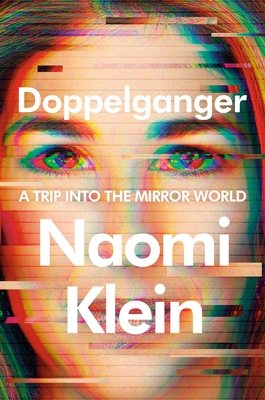More on this book
Community
Kindle Notes & Highlights
I am hardly the only one to grapple with a sense that reality is somehow warping. Almost everyone I talk to tells me about people they have lost “down the rabbit hole”—parents, siblings, best friends, as well as formerly trusted intellectuals and commentators. People, once familiar, who have become unrecognizable. Altered. It began to feel as if the forces that have destabilized my world are part of an expansive web of forces that are destabilizing our larger world—and that understanding these forces could hold a key to getting to firmer ground.
A state of shock is what happens to us—individually or as a society—when we experience a sudden and unprecedented event for which we do not yet have an adequate explanation. At its essence, a shock is the gap that opens up between event and existing narratives to explain that event. Being creatures of narrative, humans tend to be very uncomfortable with meaning vacuums—which is why those opportunistic players, the people I have termed “disaster capitalists,” have been able to rush into the gap with their preexisting wish lists and simplistic stories of good and evil.
The deeper I went, the more I noticed this phenomenon all around me: individuals not guided by legible principles or beliefs, but acting as members of groups playing yin to the other’s yang—well versus weak; awake versus sheep; righteous versus depraved. Binaries where thinking once lived.
But the pandemic, layered on top of so many other long-repressed emergencies, has taken humanity somewhere we have not been before, somewhere close but different. That difference is what accounts for the strangeness so many of us have been trying to name—everything so familiar, and yet more than a little off.
That feeling of disorientation we tell one another about? Of not understanding whom we can trust and what to believe? Of friends and loved ones behaving like strangers? It’s because our world has changed, but, like a collective case of jet lag, most of us are still attuned to the rhythms and habits of the place left behind. It’s past time to find our bearings in this new place.
This is what happens when we allow so many of our previously private actions to be enclosed by corporate tech platforms whose founders said they were about connecting us but were always about extracting from us.
So, too, with our online activities, where our relationships and conversations are our modern-day yields, designed to harvest ever more data. As with corn and soy grown in great monocrops, quality and individuality are sacrificed in favor of standardization and homogenization, even when homogenization takes the form of individuals all competing to stand out as quirky and utterly unique.
“When a human being becomes a set of data on a website like Facebook, he or she is reduced. Everything shrinks. Individual character. Friendships. Language. Sensibility. In a way it’s a transcendent experience: we lose our bodies, our messy feelings, our desires, our fears.” But we aren’t transcending to something higher, just less ourselves. And a flattened, reduced version of ourselves is easier to confuse with a flattened, reduced version of someone else.
“I’d like to think I’m pretty unique.” We’d all like to think that, wouldn’t we? The trouble is, there are just so damn many of us out there trying to be unique at the same time, using the same preprogrammed tools, writing in the same fonts, answering the same prompts.
Good brands are immune to fundamental transformation. Conceding to having become one at age thirty would have meant foreclosing on what I saw as my prerogative to change, evolve, and hopefully improve. It would have locked me into performing this particular version of me, indefinitely.
There were many nods when one student described the process as “packaging up your trauma into a consumable commodity.” It’s not that the traumas they wrote about were fake; it’s that the process required them to label difficult experiences in specifically marketable ways, and to turn them into something fixed, salable, and potentially profitable (since universities are themselves branded as the requisite first step to any lucrative career).
Given these roots, the casualness with which our culture has come to discuss the idea that humans should strive to be brands is itself a kind of violent erasure. Branding today, many believe, is an act of empowerment, with the individual now fully in charge of their own commodification, and reaping a significant portion of the profits.
Which of our opinions are genuine, and which are for show? Which friendships are rooted in love, and which are co-branding collabs? What collaborations don’t happen that should because individuals’ brands are pitted against one another? What doesn’t ever get said, or shared, because it’s off-brand?
he worried that individuals were getting stuck in “a reverence for our past act or word because the eyes of others have no other data for computing our orbit than our past acts, and we are loath to disappoint them.” Data. Computing. That was written in 1841, but it sounds very much like the cri de coeur of many a modern YouTuber or Twitch streamer, stuck churning out near-identical videos almost daily, lest fickle subscribers abandon them for one of the legions of new copycat influencers whom the algorithm recommends in the column next to or underneath their own videos.
If you successfully thing-ify yourself, then other people will begin to believe you are a thing and will throw all kinds of hard objects at you, sure that you will not bleed.
In that state of literal thoughtlessness (i.e., an absence of thoughts of one’s own), totalitarianism takes hold. Put differently, we should not fear having voices in our heads—we should fear their absence.
Brands are not built to contain our multitudes; they demand fixedness, stasis, one singular self per person. Human statues.


